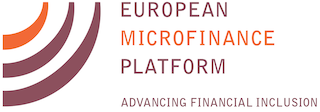 Global food security had been increasing before the COVID-19 pandemic and the invasion of Ukraine by Russia. People with low incomes were becoming more able to access – both in terms of cost and distance – a range of foods such as grains and fresh produce on a year-round basis. However, during the first year of COVID-19, 47 million women fell into extreme poverty, reducing their – and their children’s – access to
Global food security had been increasing before the COVID-19 pandemic and the invasion of Ukraine by Russia. People with low incomes were becoming more able to access – both in terms of cost and distance – a range of foods such as grains and fresh produce on a year-round basis. However, during the first year of COVID-19, 47 million women fell into extreme poverty, reducing their – and their children’s – access to
Tag: Food security
SPECIAL REPORT: Yikri of Burkina Faso Wins $110k European Microfinance Award for Progress Toward Food Security #EMW2023
 From the European Microfinance Platform (e-MFP): Yikri wins European Microfinance Award 2023 for its commitment to addressing the complex challenges of food security and nutrition in Burkina Faso.
From the European Microfinance Platform (e-MFP): Yikri wins European Microfinance Award 2023 for its commitment to addressing the complex challenges of food security and nutrition in Burkina Faso.
This report is part of
MICROCAPITAL BRIEF: OPEC Fund Lending $22m to Raiffeisen Bank for SMEs in Albania
 As its first loan to a financial institution in Albania, the Austria-based OPEC Fund for International Development recently channeled EUR 20 million (USD 21.7 million) to the Albanian unit of Raiffeisen Bank to provide loans to small and medium-sized enterprises (SMEs) in the country. The scheme especially targets
As its first loan to a financial institution in Albania, the Austria-based OPEC Fund for International Development recently channeled EUR 20 million (USD 21.7 million) to the Albanian unit of Raiffeisen Bank to provide loans to small and medium-sized enterprises (SMEs) in the country. The scheme especially targets
SPECIAL REPORT: An Interview with Christoph Pausch of e-MFP on European Microfinance Week, Luxembourg & Online, November 2023
 MicroCapital: What can we expect from EMW2023, happening in-person November 15-17 in Luxembourg and online?
MicroCapital: What can we expect from EMW2023, happening in-person November 15-17 in Luxembourg and online?
Christoph Pausch: EMW2022, back in-person after two years, showed us that there is no substitute for getting the opinion leaders and decision-makers in the inclusive finance sector together in-person, ensuring they have the time and space to debate, make new connections, and of course give presentations and discuss the various challenges and innovations underway around the world.
After the success of the hybrid EMW2022, which gathered 570 attendees (including over 200 who joined us online) from 48 countries, we are delighted to return to the beautiful Abbaye de Neumunster in Luxembourg for another hybrid event, which will once again offer an exceptional networking and knowledge-sharing experience with the top experts in the financial inclusion sector. And the programme is designed to be as conducive as possible to those joining us online from different time zones. Plus, sessions will be recorded for “catch-up” after.
MC: What choices of sessions can attendees expect?
CP: As always, EMW sessions have been put forward largely by our members – so they address the sector’s current “hot topics” – and we organise them across several thematic streams. We received an enormous response to our call for proposals that went out early in the summer, giving us great scope for a fascinating, diverse program across different streams. In addition to our usual annual topic areas – digitisation, social performance, funding/investment – this year there also will be streams on refugee finance, agri-finance, a particular emphasis on
MICROCAPITAL BRIEF: Credit Bank, FSD Kenya Engaging SACCOs in Effort to Reduce Remittance Costs for Rural Kenyans
 The UN’s International Fund for Agricultural Development (IFAD) recently announced a pair of programs that will operate in Kenya under the EU’s Platform for Remittances, Investments and Migrants’ Entrepreneurship in Africa (PRIME Africa). In particular, IFAD will fund
The UN’s International Fund for Agricultural Development (IFAD) recently announced a pair of programs that will operate in Kenya under the EU’s Platform for Remittances, Investments and Migrants’ Entrepreneurship in Africa (PRIME Africa). In particular, IFAD will fund
SPECIAL REPORT: Christoph Pausch on the European Microfinance Award 2023 – Inclusive Finance for Food Security & Nutrition
 MicroCapital: Why was “Inclusive Finance for Food Security & Nutrition” chosen as the topic of this, the 14th edition of the European Microfinance Award?
MicroCapital: Why was “Inclusive Finance for Food Security & Nutrition” chosen as the topic of this, the 14th edition of the European Microfinance Award?
Christoph Pausch: For a long time, it looked like progress in this field would be positive and continuous. But a combination of factors – among them climate change, the COVID-19 pandemic and the global inflationary context – means that progress in food security and nutrition may have stalled, or in fact reversed. According to the World Food Programme, “Conflict, economic shocks, climate extremes and soaring fertiliser prices are combining to create a food crisis of unprecedented proportions.” And the Food and Agriculture Organization reports that the number of people affected by hunger has grown by 150 million since the onset of the pandemic. But the problem is not only one of hunger – lack of access to sufficient food – it’s also one of insufficient quality, meaning poor nutrition, and lack of access to the micronutrients necessary for good health, all compounded by the stress of uncertain supply. There may be 2 billion people worldwide in this category.
There are many sectors that have to play roles in addressing food security and nutrition. And because the people most vulnerable to food insecurity and malnutrition are largely those who are low-income, living in low-income countries and financially excluded, there is a vital role for the financial inclusion
